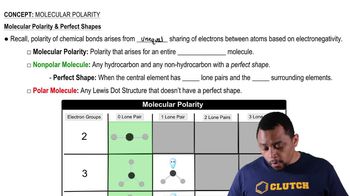Write the IUPAC name for each of the following alcohols and phenols: (12.1)
b. <IMAGE>
 Verified step by step guidance
Verified step by step guidance Verified video answer for a similar problem:
Verified video answer for a similar problem:



 1:1m
1:1mMaster Rules for Naming Alcohols Concept 1 with a bite sized video explanation from Jules
Start learning